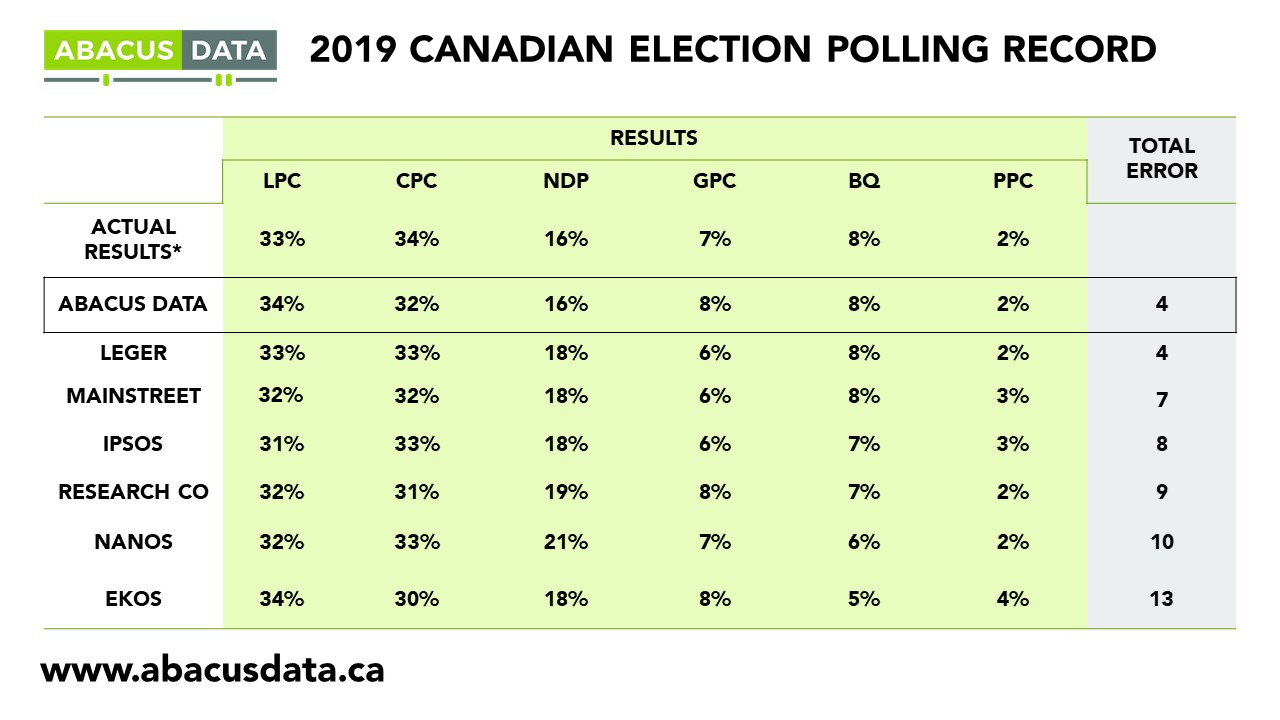Abacus Election Bulletin: Stigma in politics isn’t going anywhere, yet
August 28, 2021
Each day during the 2021 Federal Election campaign, researchers at Abacus Data will share insights and analysis from our polling in concise, insights-focused reports. To never miss our polls and analysis, subscribe to our newsletter.
As the second week of the 2021 federal election comes to an end, we are watching closely to see the diversity of Candidates that put their name forward.
When it comes to gender parity in the House of Commons things did get better in the last election, but women still only make up less than 30% of our Members of Parliament.
One of the reasons cited for the lack of parity is stigma faced by female candidates when running. Back in 2018, we found a majority of Canadians see this to be true, but what about in 2021?
To begin, a majority of Canadians, both men and women don’t feel particularly welcome in politics. Only a third of Canadians say politics is welcome to people like themselves. But that said, men still feel more welcome than women.

We also asked how Canadians see different groups of people who are currently participating in politics, and whether they face more or less criticism than others.
Unsurprising (and an indication that there is still lots of room to improve) is the difference between men and women. Nearly 90% of us agree men who are involved in politics are treated better than or at average. But for women it is the opposite. 55% of us say women are treated worse than average in politics.

But unequal treatment in politics exists beyond just gender-and is an even bigger problem for others. This year we also wanted to take a look at other groups that haven’t been traditionally represented in politics.
Canadians believe the criticism felt by LGBTQ+ and visible minorities is even greater. 57% believe visible minorities involved in politics face more criticism than average, and 59% believe the same for LGBTQ+ individuals.
Visible minorities also lack representation in the House of Commons. For instance, only account for 15% of the MP’s that were elected into office in the 2019 Canadian federal election. And when it comes to LGBTQ+ individuals that drops to just .1%.
Our data finds that lack of representation is not always tied to lack of interest. In fact, 25% of Canadians who identify as a visible minority have considered a career or volunteer position in politics. That is 9-points higher than Canadians who don’t identify as a visible minority.

Interestingly, the same does not translate for women, who are much less likely to have considered a career in politics than men. But digging deeper, stigma stills appears to be a driving force for a lack of involvement rather than interest- 70% of women who haven’t considered a political position don’t think politics is welcoming for them.
THE UPSHOT According to Oksana Kishchuk:
It may feel like we are moving towards a more inclusive space in politics and reducing barriers for involvement, but there is still a long way to go. As candidates put their name forward for this upcoming election, the decision to run for women, visible minorities, and LGBTQ+ individuals was made with an extra piece of the calculation- how much criticism will I face just for being me? When it comes to reducing this unequal treatment and stigma, we all play a part, but for the candidates who’ve put their name forward in this election, your candidacy can help others see that politics is welcoming ‘for people like me’.
THE UPSHOT According to Michael Monopoli: Visible minorities in Canada are just one underrepresented group group within Canadian politics. Making up over 22% of our population, they only represent 15% of our MPs. Here in Canada, the lack of visible minority representation within our government is not due to a lack of interest. In fact, Canadians who identify as a visible minority are more likely to consider a political career or volunteer position than their counterparts. Furthermore, visible minorities in Canada are also more likely to see politics as the best way to improve their community.
METHODOLOGY
The data in this report come from a national survey of 1,500 Canadian residents from April 4th to 6th, 2021. A random sample of panellists was invited to complete the survey from a set of partner panels based on the Lucid exchange platform. These partners are double opt-in survey panels, blended to manage out potential skews in the data from a single source.
The margin of error for a comparable probability-based random sample of the same size is +/- 2.5% 19 times out of 20, respectively. The data were weighted according to census data to ensure that the sample matched Canada’s population according to age, gender, educational attainment, and region.
The survey was paid for by Abacus Data Inc.
Abacus Data follows the CRIC Public Opinion Research Standards and Disclosure Requirements that can be found here: https://
ABOUT ABACUS DATA
We are the only research and strategy firm that helps organizations respond to the disruptive risks and opportunities in a world where demographics and technology are changing more quickly than ever.
Find out more about what we are doing to help clients respond to the COVID-19 pandemic.
We are an innovative, fast-growing public opinion and marketing research consultancy. We use the latest technology, sound science, and deep experience to generate top-flight research-based advice to our clients. We offer global research capacity with a strong focus on customer service, attention to detail and exceptional value.
We were one of the most accurate pollsters conducting research during the 2019 Canadian Election.

Contact us with any questions.
Find out more about how we can help your organization by downloading our corporate profile and service offering.



